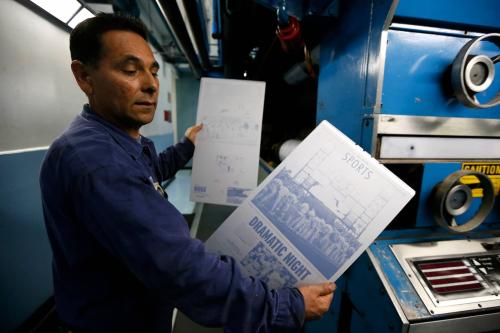Introduction:
Today’s diverse forms of media are following an ancient tradition. In ancient civilizations, governments and members of the ruling classes always utilized various forms of public broadcast to inform the general public of news that it deemed acceptable. In ancient Egypt, noblemen kept scribes to maintain records and to inform the uneducated masses of noblemen’s successes and intentions. Ancient Roman public criers dispensed announcements (along with advertising) to the plebeians in public squares and forums. In an early effort to reach as large an audience as possible, announcements were also posted at the crossroads of three different roads (hence the origin of the word “trivia”).
Announcements in this form have always given rise to dissenters. Graffiti was a traditional form of opposition (even when the public was illiterate), the likes of which have been left on walls and in caves for historians to interpret. Roman politicians, thought to have behaved dishonorably in office, were mercilessly lampooned on the walls of the city. Though the graffiti was considered a defacement of property and was often lacking in artistic value, it was undoubtedly read.
A millennia and a half later, every government-approved newspaper article or television report has an independent paper or website actively critiquing it. Dissent is not new. It is just now more efficiently disseminated.



